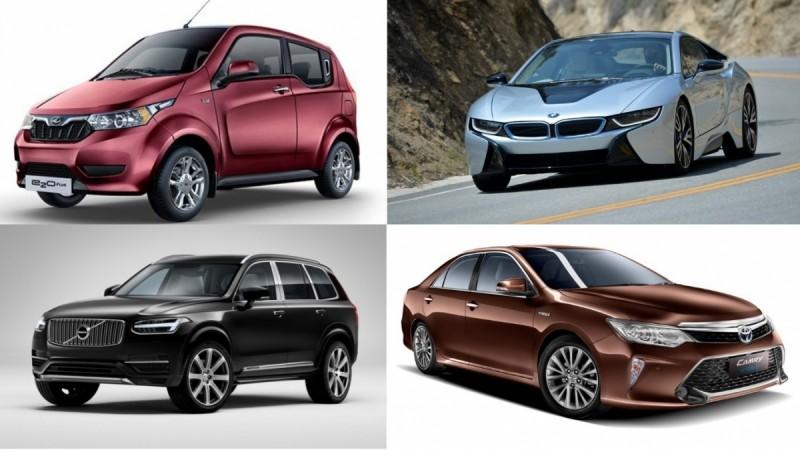
Carmakers have welcomed Centre's U-turn on its stand on subsidies for hybrid cars giving them some parity with electric vehicles, media reports suggest.
A recent department of heavy industries request to the expenditure finance committee (EFC) seeking Rs 13 crore to promote hybrid cars indicates a marked shift, trade sources say.
The authorities were earlier against giving subsidies to hybrids and wanted to limit them to fully electric vehicles. This inhibited the adoption of technologies that reduce green house gas emissions, market sources suggest.
The department sought the policy change at a meeting with the EFC on August 23, Livemint reported. The department wanted incentives for potential buyers of at least 10,000 hybrid cars carrying lithium-ion batteries of 0.5-2 kilo watt hour (kWh).
The meeting was held to discuss the second phase of the Faster Adoption and Manufacturing of Electric and Hybrid vehicles (Fame) scheme, the government's prestigious programme for driving green technologies in the country's automotive sector.
The government apparently gave into lobbying by automakers like Toyota Kirloskar Motor (Prius and Camry) Maruti Suzuki India (Ciaz) and Honda Cars India, according to the report.
Indian firms such as Mahindra and Mahindra and Tata Motors have been pushing for a direct transition to electric cars, bypassing the hybrid route. Mahindra produces e2O and e-Verito while Tata has Tigor electric.
The government decision to place hybrids in the highest GST slab of 28 per cent along with a 15 per cent cess had upset Japanese carmakers. Electric cars were placed in the 12 per cent slab. The automakers felt the lack of government support would inhibit the market expansion.
The prime minister's office (PMO) in September rejected the EFC recommendation of sanctioning Rs 5,500 crore for the second phase of the FAME scheme. The PMO has been pushing for higher incentives for manufacturing lithium-ion batteries in India.
The change in the government approach reflects an increasing awareness that electric vehicles alone will not be able to suppress oil imports and pollution, the report said citing R.C. Bhargava, chairman of Maruti Suzuki.
He said that a realisation that only 10-15 per cent of the vehicles on the country's roads would be electric until 2030 must have brought about the change. "The PM has spoken about CNG and methanol-based vehicles as an alternative and hybrid cars can be the third one," Bhargava said. "It's not a sudden decision – it has been debated for some time and the government did the right thing and refined the policy."
While the government reversed its position on not subsidising the hybrids, it stopped short of cutting taxes on them.
Some see this as a short-term approach. "This must be a short-term approach to promote hybrid vehicles till the electric vehicle ecosystem is developed," the report quoted Suvranil Majumder, head, EV projects, International Finance Corp, which is the sector arm of the World Bank group, as saying. "Hybrids have matured and are cleaner than vehicles with internal combustion engines. Overall, the focus of the government should be on green mobility," according to him.








